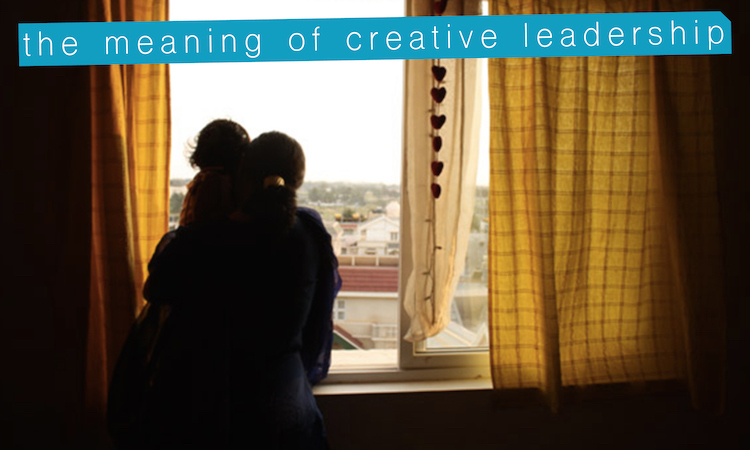This fall, the 2015 alumni of NAMAC’s Creative Leadership Lab will be sharing unique, powerful and poetic views on the Meaning of Creative Leadership. In a day and age when the notion of storytelling has been co-opted by big business, and the role of storytelling has been deeply commodified, we hope to hold space for a conversation led by media makers whose projects and purpose open fresh perspectives on the role of art and artists in cultural transformation.
SEPTEMBER 21, 2015 | BY KATERINA CIZEK
With collaboration at its core, the challenge of Creative Leadership is the dance between the (beautiful) chaos of creativity and the (necessary) framing, organizational instinct of more conventional forms of leadership. Both “Creative Leadership” and “Leading Creatively” mean keeping wheels on both tracks, in parallel. They are not opposites, they are parallels on the journey to transformation, justice, and joy. Chaos needs structure and structure is meaningless without creativity. Like rhythm and melody. it also takes practice and experience. Trusting the creative process involves leaping into chaos, with the belief that patterns, meaning, and truths will emerge. Those patterns can become structures and and frames for imagining a new way forward. But they are found within the chaos; they are not found by “containing” the chaos, as so many forms of leadership and control do.
This is where, I believe, the traditions and instincts of documentary art can contribute profoundly in shifts in arts and social justice movements.
Documentary methodology is at its best an improvisation, a co-creation between media-makers and people formerly known as subjects and audiences. At its best, documentary is an act of democracy.
Documentary methodology is at its best an improvisation, a co-creation between media-makers and people formerly known as subjects and audiences. At its best, documentary is an act of democracy. It’s a form of leadership that honours, recognizes, and facilitates the sharing of responsibility in the navigation of where we go next, if only we can imagine it together. It challenges the historical, current, and emerging systems of privilege in profound and everyday ways. Documentaries become the agents provocateurs of democracy when they help change unjust laws, when they improve the lives of people and the health of their communities, when they reframe important questions and share in the collective navigation of the chaos of reality.
The documentary genre has always been at the forefront of innovation. The first films were newsreels. When sound was introduced, documentarians were the first to experiment with it. When the camera came off the tripod, documentarians again were the first to define the new language of cinema. And again with new technologies—the traditions and instincts of documentary can lead the way in creative leadership too.
Katerina Cizek is a documentary filmmaker and two-time Emmy-winner, an internationally recognized leader, and a pioneer in digital media.



Leave a Reply